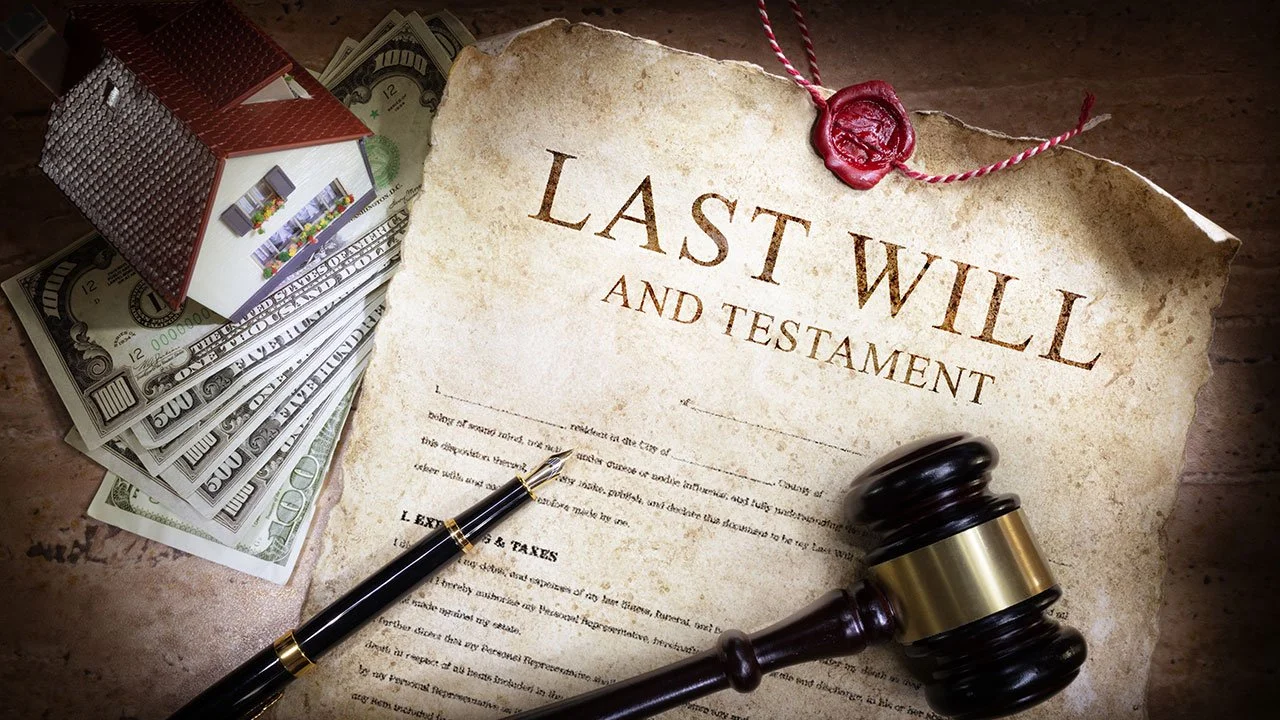Wills & Estate Planning: The Smart Money Move You’re Probably Avoiding
Let’s talk about something that’s often pushed to the bottom of the financial to-do list, right next to “organize receipts” and “cancel unused subscriptions”: estate planning.
Image credit and source : Woodman Garcia-Sepulveda
It’s not flashy, it’s not fun, and it definitely doesn’t come with a dopamine hit like checking your investment portfolio. But here’s the truth: estate planning is one of the most powerful, empowering, and loving financial moves you can make. It’s how you protect your people, your property, and your peace of mind. Whether you’re just starting to build wealth or you’ve got a full-blown empire of assets, having a will and a clear estate plan ensures that your money works for you, even when you’re not around to manage it.
At Bacon & Heels, we’re all about helping you understand money—not just how to earn it, but how to manage, grow, and protect it. Estate planning isn’t just for the wealthy or the elderly, it’s for anyone who wants to take control of their financial future and leave a legacy that matters.
What Is Estate Planning, Really?
Estate planning is the process of organizing your financial and personal affairs so that if something happens to you, whether death or incapacity, your wishes are clear, your assets are protected, and your loved ones aren’t left in chaos.
It typically includes:
A will: Specifies who gets what and who’s in charge.
Power of attorney (POA): Appoints someone to make financial/legal decisions if you’re unable.
Health care directive: Outlines your medical preferences and designates a decision-maker.
Trusts (optional): Used to manage assets, reduce taxes, or protect beneficiaries.
When to Create a Will—and When to Update It
The best time to create a will? Yesterday. The second-best time? Today.
You don’t need to be rich, retired, or married to need a will. If you have assets, dependents, or even just a clear idea of who should handle things if you’re gone, it’s time to put it in writing.
You should create a will if you:
Own property or valuable assets
Have children or dependents
Are married, divorced, or in a long-term partnership
Want to leave specific items or money to friends, charities, or causes
Want to name an executor or guardian
Want to avoid family confusion or conflict
And once you’ve created your will, it’s not “set it and forget it.” Life changes, and your will should change too.
Update your will when:
You get married or divorced
You have a child (or adopt one)
A beneficiary or executor passes away
You move to a new province, state, or country
You acquire or sell major assets (like a home or business)
Your financial situation changes significantly
You want to change who gets what—or how much
Think of your will as a living document. Revisit it every few years, or after any major life event. It’s not just about protecting your money—it’s about protecting your people.
U.S. Estate Planning Highlights
In the United States, estate planning is shaped by both federal and state laws. Here’s what you need to know:
Probate: The legal process of validating a will. It can be slow and expensive depending on your state.
Federal estate tax: Applies to estates over $13.61 million in 2024—so most people won’t owe it, but high-net-worth individuals should plan carefully.
State estate/inheritance taxes: Some states (like New York and Oregon) have their own estate taxes with lower thresholds.
Living trusts: Popular for avoiding probate and keeping things private.
Canadian Estate Planning Essentials
Canada’s system is simpler in some ways than the US, but still requires smart planning:
No estate tax: Canada doesn’t have a formal estate tax, but there is a “deemed disposition” tax. When you die, your assets are considered sold, and capital gains taxes may apply.
Probate fees: Vary by province. Ontario, for example, charges 1.5% on estates over $50,000.
Multiple wills: In provinces like Ontario, you can use multiple wills to reduce probate fees on private company shares.
Registered accounts: RRSPs and TFSAs can pass directly to named beneficiaries, bypassing probate.
How to Start Your Estate Plan
Here is a checklist for you to start your estate planning:
Take inventory: List your assets—bank accounts, investments, property, insurance, etc.
Choose your people: Decide who will be your executor, POA, and health care proxy.
Draft your will: Use a lawyer or a reputable online service.
Plan for taxes: Talk to a financial advisor about minimizing taxes and probate fees.
Review regularly: Update your plan after major life events—marriage, divorce, kids, moves.
Pro Tips for a Smooth Estate Plan
Name beneficiaries on registered accounts and insurance policies.
Store documents safely and let your executor know where to find them.
Avoid DIY pitfalls: Online templates can help, but legal advice ensures your plan holds up.
Talk to your family: Transparency reduces confusion and conflict later.
Partnering with Willful to Make It Easy
I believe estate planning should be simple, accessible, and empowering. That’s why we’ve partnered with Willful, a Canadian platform that helps you create a legally valid will in under 20 minutes, no lawyer required.
Whether you’re just starting out or updating your plan, Willful makes it easy to take control of your future. Through our collaboration, we’re helping more people protect what matters most,with clarity, confidence, and a little less stress.
Ready to get started? Check out Willful here and take the first step toward peace of mind.
The Bottom Line
Estate planning isn’t just about death, it’s about control. It’s about making sure your money goes where you want, your loved ones are protected, and your legacy lives on. Think of it as the final chapter in your financial story. And like every good story, it deserves a strong ending.

